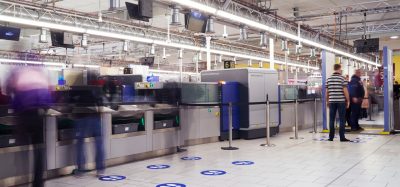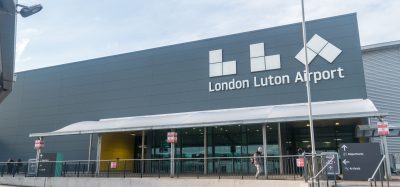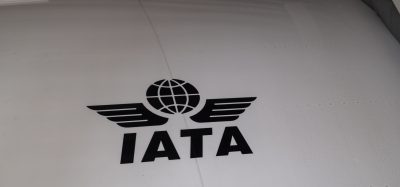Omega: Opportunities for meeting the environmental challenge of growth in aviation
- Like
- Digg
- Del
- Tumblr
- VKontakte
- Buffer
- Love This
- Odnoklassniki
- Meneame
- Blogger
- Amazon
- Yahoo Mail
- Gmail
- AOL
- Newsvine
- HackerNews
- Evernote
- MySpace
- Mail.ru
- Viadeo
- Line
- Comments
- Yummly
- SMS
- Viber
- Telegram
- Subscribe
- Skype
- Facebook Messenger
- Kakao
- LiveJournal
- Yammer
- Edgar
- Fintel
- Mix
- Instapaper
- Copy Link
Posted: 28 September 2007 | Roger Gardner, Chief Executive Officer, OMEGA | No comments yet
The challenge of sustainable growth in aviation has brought significant benefits to world trade and development. This success, however, is not without environmental impacts on climate change, local air quality and noise. With global air transport predicted to more than double in the next 30 years, technologists, policymakers and regulators face considerable challenges in ensuring the future sustainability of civil aviation.
The challenge of sustainable growth in aviation has brought significant benefits to world trade and development. This success, however, is not without environmental impacts on climate change, local air quality and noise. With global air transport predicted to more than double in the next 30 years, technologists, policymakers and regulators face considerable challenges in ensuring the future sustainability of civil aviation.
The environmental impacts of aviation are often felt hardest by airports. The local pressures of noise and air quality directly affect local community relations and are an issue related to growth. Climate change is a significant additional pressure as carbon reduction becomes a key business driver for airports from the perspective of energy saving, CSR and cost. Airports continue to take significant steps individually and through co-ordinated action to reduce impacts and ease pressures upon growth, but this is a tough challenge and innovative new responses are needed.
Responding to the need for new and effective ways to control and mitigate impacts requires research and study work drawing upon a range of capabilities and with a focus upon doing things that respond to the mains threats. Much is done by the airports community in consort with local communities, other industry stakeholders and the Government. It is recognised, however, that the scale of the current challenge means shifting up a gear in terms of new policies and measures and that, in turn, requires sound evidence and research knowledge. Recognising this need for improved evidence, the UK Government has supported a new partnership of universities – Omega (Opportunities for Meeting the Environmental challenge of Growth in Aviation. The aim of Omega is to bolster the supply of policy-relevant study work and to provide a forum for discussion and optioneering with the industry and other stakeholders.
Omega: a landmark partnership
The UK has world-class academic expertise in environmental impacts of aviation, aeronautical engineering and air transportation that has been supporting the industry and Government for many years. The aim of the Omega initiative – launched in January 2007 – is to brigade this capability in a co-ordinated manner to respond to major open questions in the debate and focus upon longer-term sustainability. Omega is a multi-disciplinary partnership of nine leading UK universities. It has been established to study technological, scientific, operational and market/economic aspects of the aviation environmental debate. Omega has many stakeholders in the aviation sector; Government and NGOs as well as overseas stakeholders.
Omega exists to generate timely and relevant evidence to address the environmental impacts of civil aviation and to transfer knowledge within and beyond academia. The main aim of Omega is to strengthen the knowledge base that will reduce aviation’s environmental impacts and enhance its sustainability.
Government support
At a recent parliamentary reception for Omega, UK Aviation Minister Jim Fitzpatrick welcomed Omega as an important addition to actions tackling aviation sustainability, saying: “Omega will help us develop long-term strategies for a more sustainable aviation industry – by taking forward important scientific research and providing an influential forum for debate”. He added: “Omega is a vital part of that process. Its aims are closely linked with those of Government, and will allow us to make better use of the exceptional academic resources we have in this country.”
Vital role
Omega CEO Roger Gardner emphasises that Omega “is committed to making a difference in the debate and to being the first port of call for those seeking environmental evidence related to long-term sustainability of the sector”. He is also clear that: “Omega brings together world class academic expertise to stimulate and inform and that it must work closely with stakeholders, who are at the coalface of delivery, to bring forward effective solutions”.
There is increasing recognition that civil aviation faces a ‘sustainability gap’ that needs urgent attention if capacity constraints due to environmental concerns are not to get significantly worse. Advances in technology cannot keep pace with predicted growth giving rise to the need for innovative solutions. Air transport boosts economic development, whether it is business or leisure-based and society recognises its value. None of us wants to give up flying; but equally no-one wants its climate change effects or the local impacts of noise and pollution around airports.
Omega’s partnership of nine UK universities, led by MMU with Cambridge and Cranfield, is adding significantly to efforts to find sustainable ways forward for aviation. Wide-ranging studies – 18 initiated so far – and various knowledge transfer activities examining a number of priority technological, scientific and economic issues are now underway and include areas such as:
- Carbon offsetting and emissions trading efforts
- Identifying low carbon technologies
- Alternative and biofuels
- Open rotor aircraft
- Projections for growth and implications for climate change
- Community reaction to airport noise
Knowledge transfer works in both directions, so Omega is keen to engage industry and other stakeholders in its studies and various workshop activities to get the best out of cross-fertilisation of ideas and innovation.
A variety of further knowledge transfer studies will be set in hand during autumn 2007, many in collaboration with industry and other stakeholders. Omega has taken stock of the state of the debate with stakeholders and has a good understanding of the key topics requiring attention: the second round of studies will target these and build upon work in hand. This is part of a strategy of narrowing uncertainty and building upon promising options. Some of these studies are being taken forward in collaboration with the US PARTNER network of universities, given that there is a common cause on many aviation sustainability issues.
Here are some of the areas of Omega’s focus – study areas where Omega is working closely with stakeholders in the sector – with particular emphasis upon the topics that bear closest upon the airport community:
Air quality
Omega has commissioned a number of studies into quantification and modelling aspects of the airport air quality debate. Without a good understanding of what emissions are produced and where and how these emissions reach communities, taking effective action will always prove to be difficult. Omega work aims to sharpen knowledge of dispersion of the aircraft source and improve understanding of particulate emissions. This will support more accurate modelling of airport emissions and provide insights on the character of particulate emissions and from the variety of airport sources.
Sustainable fuels
The potential to use alternative fuels for aviation is attracting much attention as fuel cost rises, supply is less certain and the carbon use pressures rise. Using such fuels in aircraft raises particular issues given the tough flight conditions in which they would have to operate and the overriding needs to demonstrate system safety. An Omega project on alternative fuels, which is taking a rounded ‘well to wake’ approach is giving most attention to the specific emissions characteristic of a range of potential alternative fuels such as kerosene reformulations, synthetic liquid fuels manufactured from coal, biomass or natural gas and bio-fuels made from agricultural crops. It will assess the noise, emission and engine performance of each sustainable fuel and provide fundamental data on the properties and combustion characteristics, both of sustainable fuels and fuel blends and develop sustainable aviation fuel reaction models. Such information is crucial for deciding to what extent alternative fuels are appropriate for use in aviation – though doubtless there will also be a significant use of sustainable fuels at airports for the range of airside uses and for landside service vehicles.
Emissions trading schemes and carbon offsetting
It is now widely recognised that economic and market instruments have a role to play in attaining a sustainable future for aviation. Airports are proactive in these areas and have a strong role to play in engaging the public. Emissions Trading Schemes (ETS) and carbon offsetting are, respectively, measures that account for the difficulties in applying technological solutions in the sector and draw the traveller into the sustainability debate.
Omega’s work in the ETS area is to study the possible impacts on the aviation industry and general economic activity of including the aviation sector in the EU ETS. A wide range of scenarios are being studied, in order to determine the conditions under which the inclusion of aviation in the EU ETS might lead to technological change in the aviation industry towards higher energy and emissions efficiencies. The project will provide essential, policy-relevant information for both governments and industry.
Carbon offsetting is part of a package of measures that can help address aviation emissions growth but only if it is widely used. At present offsetting has been adopted mainly by the commercial sector and government with take-up by the travelling public being poor. Omega is looking at the efficacy of different scheme approaches and public perceptions and sensitivity to paying an offset for the carbon produced by their air travel. The study focuses upon the respective merits of voluntary versus mandatory schemes and the potential for greater take-up if offset schemes offer more immediate and local environmental and social benefits.
Climate science and technology
The ability to deliver emissions improvements locally is often linked to issues related to climate science uncertainties, for instance, the importance of non-CO2 upper atmospheric impacts and how that drives technology strategy. Manufacturers seek scientific certainty to enable engines and aircraft to be optimised for minimal emissions (and noise) impact. There are many questions wrapped up in this and Omega is picking off the most important issues to help narrow uncertainties:
- Contrails and aviation-induced cirrus cloud Omega is adding to knowledge in this area by incorporating contrails and greenhouse gas emissions into one of the world’s foremost climate models – that of the Hadley Centre, part of the UK Meteorological Office. This work will enable scientists to examine climate impacts of aircraft in depth, giving first insights into daytime temperature range effects and regional climate responses. The resulting model will serve as a valuable, policy-relevant tool ideal for potential mitigation studies.
- Prioritisation of airframe and engine technologies is another study that uses a system model to estimate the overall impacts of a given improvement in technology. There are many options but deciding upon the right strategy requires an understanding of the emissions performance of a range of technologies.
- Trade-offs in engine design and technology are examined in a study that combines models of jet engine exhaust and climate impact to understand the trade-offs between climate impacts of contrails, CO2 emissions and ozone and methane changes that result from NOx emissions. The study has the potential to provide a practical guide to engine manufacturers, aircraft manufacturers and airlines on minimising aircraft impact on climate, both for current and future fleets.
- Open rotor aircraft, a study area that is a prime example of trade-offs is open-rotor engines which have the potential for significant fuel (and therefore CO2) savings but are noisier (as shown in the demonstrator programme some years ago). The advanced open rotor concept is one of the few propulsion technologies that has the potential to make significant reductions in aviation emissions, but open rotor technology faces major challenges if advantages are to be achieved. Omega is looking at the state of noise suppression and control to see if this technology can be brought to market with acceptable noise levels.
Noise
The Omega community recognises that noise is a perennial issue and that public experience and expectations are as much a part of the debate as the technological work that seeks to make new engines and airframes quieter; and the operational work to define procedures to fly more quietly. Whilst technology has delivered a lot over the decades, there are diminishing returns for large investment as technology matures and there are increasing pressures through trade-offs with other environmental impacts. Average aircraft size growth and land use pressures add to the problems faced by airports and the airline community in delivering the growth that society demands.
One of the Omega studies aims to understand better how people regard and cope with noise. A K-T study entitled Understanding Community Responses to Aircraft Noise Exposure is examining airport to community communication and testing the viability of new measures of noise exposure which have been designed to address these issues. New noise indicators allow users to ‘see inside’ aircraft noise contours and learn about location of flight tracks. They may also provide a better understanding of the impact of aircraft noise on people’s lives and the factors that affect the tolerance of aircraft noise.
If the new measures are found to be successful they will improve communication between airports and neighbouring communities about aircraft noise disturbance. They will also help introduce improved noise control measures that enhance the potential for airport growth so that the social and economic benefits of air transport may continue.
Looking forward
In its first 7 months of activity, Omega has significantly added to the body of work addressing the aviation sustainability challenge. Perhaps even more importantly, it is drawing together the academic community with the industry and government to take a rounded and strategic look at longer term solutions and policies. Although aviation’s impacts may, in relative terms be regarded as fairly small, it is the growth projections that carry the threat. Omega’s focus on looking to identify solutions for the longer term (30 – 50 years) – where does the industry need to be by 2030 and beyond – to achieve sustainability – is driving the studies and workshop activities that are part of the second tranche of activities that Omega is setting in hand. Much of this work will build upon the initial studies, which will mature over the next twelve months, but also dig into new areas such as airport operations (including air traffic management), carbon neutrality, the structure of the industry from an environmental perspective and ‘people issues’ to engage the public in fostering workable solutions. Omega seeks wide engagement in the debate to obtain maximum value from academic evidence that is brought to those who build aircraft, run airports and airlines and set the policy and regulatory framework.
In conclusion
The Omega partnership of universities is keen to work with the airports community – internationally as well as in the UK – to make aviation more sustainable than its growth profile currently suggests. There is a need for a dynamic flow of information between academia, the industry and policy makers and Omega provides a forum for exploring issues and options. This forms a part of the work of Omega and will help to spur further relevant knowledge transfer activity. Given the international nature of the debate, there is a need for academia to look broadly across the stakeholder community to work with those who are addressing problems first hand across the world and Omega is developing liaison with academics and industry stakeholders including airports.
Sustainable aviation has never been more topical – witness the recent Heathrow climate change camp – nor the need for innovative solutions to the challenge more pressing. Omega adds a strong new UK dimension to bringing evidence to the debate with a clear focus upon added value and workable solutions but it is keen to engage internationally to share information and build alliances that will respond to the common objective of a cleaner and quieter future for aviation.
Issue
Related topics
Related organisations
Partnership for AiR Transportation Noise and Emission Reduction (PARTNER)


















